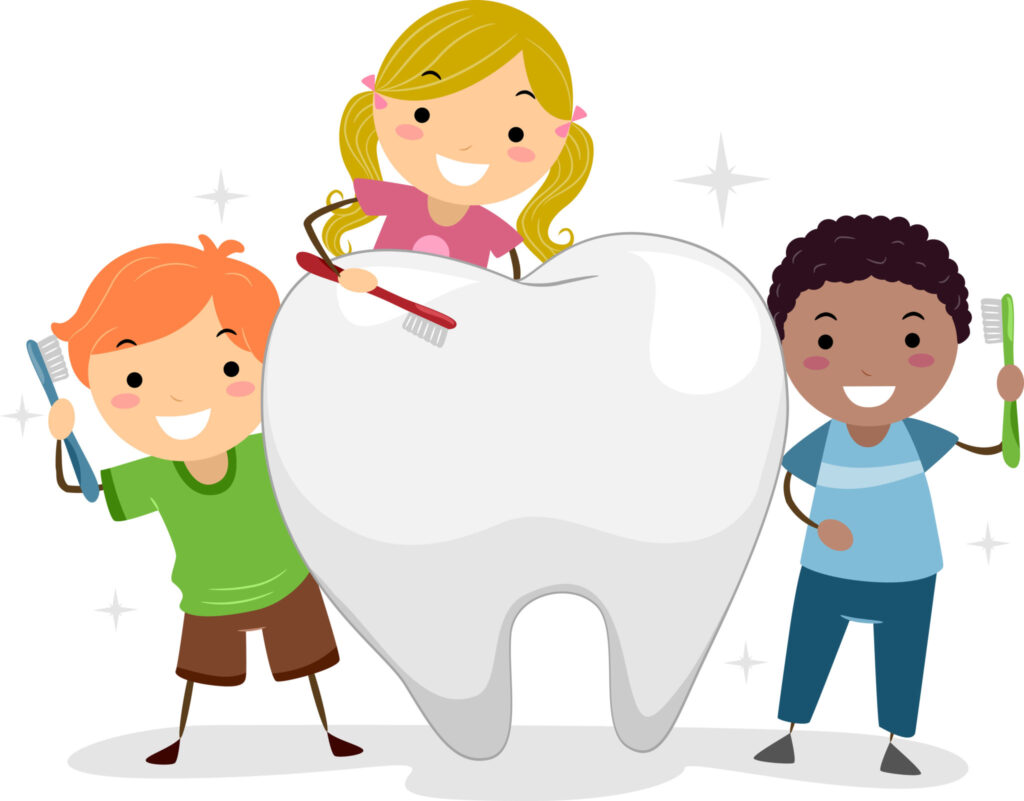We understand the importance of setting children on the right path to a lifetime of healthy smiles. As parents, ensuring your child’s dental health is just as important as caring for their overall well-being. Good oral hygiene habits developed early in life can have long-lasting effects, helping to prevent common dental problems like cavities, gum disease, and more serious issues down the road.
In this blog, we’ll discuss the critical role children’s dental health plays in their overall development, common dental issues faced by kids, and tips for parents to help their children maintain excellent oral health.
Why Children’s Dental Health Matters
Many parents might assume that because baby teeth are temporary, they’re not as important as adult teeth. However, nothing could be further from the truth. Baby teeth, also known as primary teeth, serve several important functions:
- Helping with Chewing and Nutrition: Strong, healthy baby teeth enable children to chew their food properly, which aids in digestion and ensures they receive the necessary nutrients for growth.
- Speech Development: Teeth are essential for proper pronunciation and the development of clear speech. Missing or damaged teeth can lead to speech issues that may require intervention.
- Guiding Adult Teeth into Place: Baby teeth act as placeholders for permanent teeth. If a baby tooth is lost too early due to decay or injury, it can cause alignment issues, leading to the need for braces or orthodontic treatment in the future.
By promoting good dental habits from a young age, you’re not just protecting your child’s smile today—you’re laying the groundwork for a lifetime of good oral health.
Common Dental Issues in Children
Children are particularly vulnerable to certain dental issues that can affect their health and confidence. Understanding these problems can help parents take preventive measures.
1. Tooth Decay (Cavities)
Tooth decay is one of the most common chronic conditions in children. Bacteria in the mouth feed on sugars and starches, producing acids that can erode the enamel and cause cavities. If left untreated, cavities can lead to pain, infection, and even tooth loss.
Prevention Tip: Limit sugary snacks and drinks, encourage regular brushing and flossing, and schedule routine dental visits.
2. Teething Issues
Teething is a natural process where baby teeth emerge through the gums. While this is an exciting milestone, it can also be a source of discomfort for babies. Common signs of teething include fussiness, drooling, and swollen gums.
Prevention Tip: Offer a clean teething ring or a cool washcloth for your baby to chew on, and gently massage their gums to soothe discomfort.
3. Thumb Sucking and Pacifier Use
While thumb sucking and pacifier use are common in infants, prolonged habits can affect the alignment of teeth and the development of the mouth. If thumb sucking continues past the age of 4, it may interfere with the proper growth of the jaw and permanent teeth.
Prevention Tip: Encourage your child to break the habit early, and consult your dentist if you’re concerned about the impact on their teeth.
4. Gum Disease
Even young children can develop gum disease, a condition caused by plaque buildup along the gum line. If not addressed, it can lead to more severe forms of gum disease in the future.
Prevention Tip: Teach children to brush their gums gently and floss daily to remove plaque that can cause gum inflammation.
Dental Care Tips for Parents
As a parent, you play a vital role in helping your child develop good dental habits. Here are some tips to keep your child’s teeth healthy:
1. Start Early
Good oral hygiene should begin even before your child’s first tooth appears. Wipe their gums with a soft, damp cloth after feeding. Once teeth emerge, start brushing twice a day with a soft-bristled brush and a small amount of fluoride toothpaste.
2. Regular Dental Check-ups
Children should visit the dentist by their first birthday or when their first tooth appears. Regular check-ups allow us to monitor their oral health, clean their teeth professionally, and catch potential issues early.
3. Establish a Brushing Routine
Make brushing and flossing part of your child’s daily routine. Supervise their brushing until they’re about 7 or 8 years old to ensure they’re cleaning all surfaces of their teeth properly. Encourage the use of fluoride toothpaste, which strengthens enamel and protects against cavities.
4. Promote a Healthy Diet
A balanced diet not only supports your child’s overall health but also their dental health. Limit sugary snacks and drinks, and offer calcium-rich foods like milk, cheese, and yogurt to help build strong teeth.
5. Use Dental Sealants
For added protection, especially for the back teeth (molars) that are more prone to cavities, your dentist may recommend dental sealants. Sealants are a protective coating applied to the chewing surfaces of the teeth to prevent decay.
How George Street Dental Surgery Can Help
At George Street Dental Surgery, we are committed to providing gentle, compassionate care for children of all ages. Our experienced team understands the unique dental needs of kids and works to create a positive, stress-free experience at every visit. Whether your child is here for a routine check-up, a cavity filling, or preventive treatments like sealants, we’ll ensure they feel comfortable and confident about their dental care.



